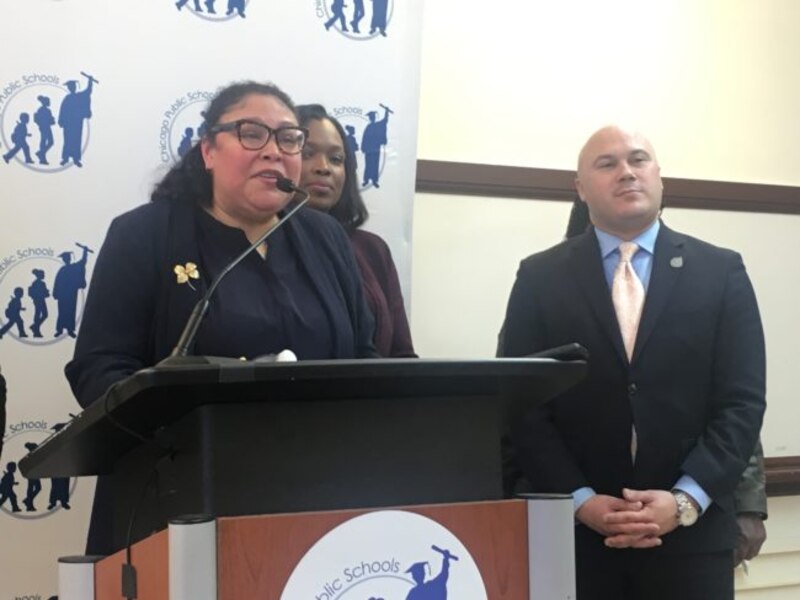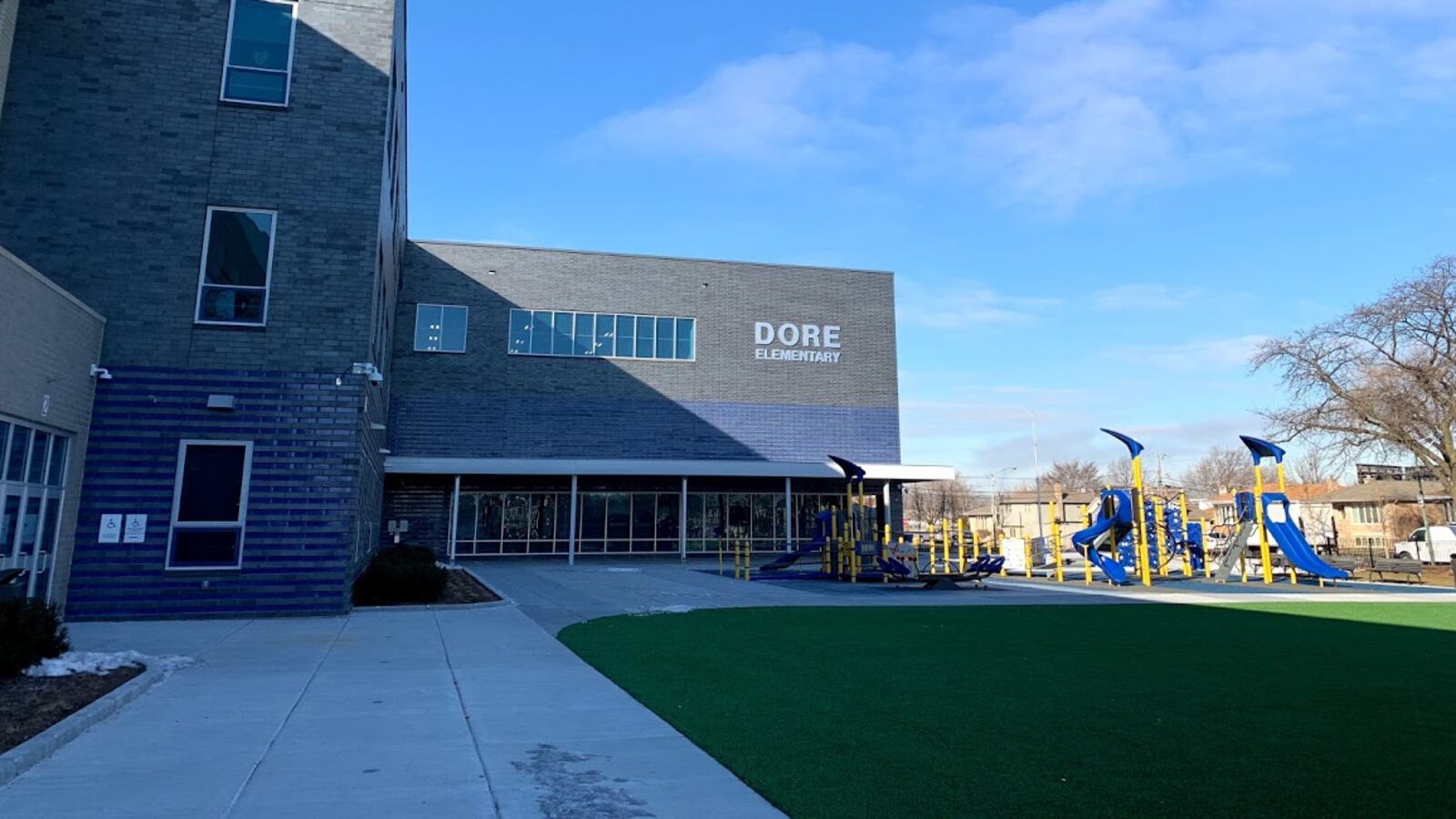Most Chicago schools will get a budget boost this fall as the city adds new programs and props up spending at schools with low enrollment.
But a third of city-run schools will see their budgets decline amid a shift in the way Chicago funds school budgets.
Overall, Chicago Public Schools will send $60 million more to schools next school year, according to numbers shared with principals on Monday. That total reflects nearly $90 million in new programs — and a $30 million loss at several schools because of overall declining enrollment.
A large portion of the money — $31 million — will go to “equity grants” to 219 schools that are struggling with enrollment. The money is intended to help those schools maintain or even bulk up programs with the aim of attracting more families.
The district will spread another $6 million among 100 or so schools with the highest concentrations of English language learners.
Chicago had previously announced two other initiatives that will boost spending at some schools: the creation of 32 new academic programs to help neighborhood and magnet schools compete with popular test-in schools and the addition of 135 new preschool classrooms as part of a push fueled by Gov. J.B. Pritzker’s $100 million in additional early childhood spending.
“These are key investments that will help CPS continue its record-breaking progress,” CEO Janice Jackson said during a press conference Monday at the district’s Bronzeville office.
Related: Good news for some schools in $32 million push, but questions surface about whether process is fair
By sending money to schools with low enrollment rather than penalizing them for failing to attract students, Jackson is sending a clear signal that she is doing things differently from outgoing Mayor Rahm Emanuel’s previous schools chiefs — at a moment when the city is poised to elect a new mayor who could decide not keep her on.
“Regardless of enrollment decline, there are students enrolled at those schools, and every student in this district deserves the opportunity to access high quality educational experiences, so we have to make sure we’re providing those opportunities,” the district’s chief academic officer, LaTanya McDade, said at the announcement. “I think our focus shouldn’t be on closing schools some time in the future — our focus should be on quality education today.”
Eleven high schools are getting the largest equity grants, $400,000 each. They include Harper High School, which is in the process of closing, as well as schools with few students, such as Hirsch High School. Hirsch currently has 95 students, according to the city’s data, down from 137 last year.
Related: Eve Ewing explains why some communities just can’t get over school closings
One of the biggest beneficiaries of the new spending is Dyett High School for the Arts on the city’s South Side, which recently reopened after landing on a closing list because of low enrollment. Dyett is among five schools that will see more than $1 million increases, as well as the hyper-competitive Walter Payton College Prep on the Near North Side and Dore Elementary School, whose principal joined Jackson for the announcement.

In September, Dore will open three new pre-K classrooms and expand a program that serves students with special needs using the new funding, said Principal Tai Basurto. She praised the district for rolling out budgets far earlier than in the past, when they typically did not know how much they would be able to spend until the end of the summer.
Charles Anderson, principal of Michele Clark High School, said he’d been concerned that his budget would decrease after a slight enrollment drop since last year. Instead, his 530-student school will receive $400,000 to become the first IB high school on the West Side and get $90,000 “equity grant” — resulting in a $363,000 boost over this year’s budget once money that accounts for enrollment declines is subtracted out. The new grants, Anderson said, would allow the school to “retain the resources and supports our kids need and deserve.”
Next year’s school budgets aren’t being warmly received by everyone. A third of district-run schools will have less to spend next year than they did this year. And the Chicago Teachers Union said the city’s budgeting approach still penalizes some schools unfairly and doesn’t provide enough to boost teacher salaries by the amount the union wants.
“Despite appearances, the district is far from providing equity,” union chief Jesse Sharkey said in a statement.
The budget data released by the school district doesn’t include charter schools, the district said in a statement, because it is working with the schools on a proposal to modify state funding requirements for charters as part of its commitment to provide them “budgets that are equitable and aligned to allocations for district-run schools.”
The announcement Monday comes a week before the mayoral runoff election between Toni Preckwinkle and Lori Lightfoot. The victor will have the power to retain or replace Jackson, who is set to release a five-year plan for the district on Tuesday.
Both candidates say they oppose school closures. And both have stressed the need for stability at the school district. But only Preckwinkle has committed to keeping Jackson, while Lightfoot — the current front-runner — said she prefers to keep her options open.


